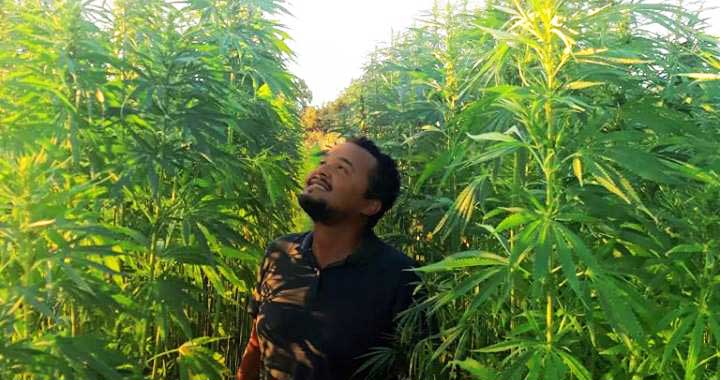BAfter medical cannabis reforms in Portugal were announced, fears over the future of the hemp industry have emerged. There are now serious concerns that farmers will not be allowed to sow crops in 2019. Humberto Nogueira, a hemp advocate and consultant in Portugal told HempToday.
In July of this year it was announced that medical cannabis would be made available in limited circumstances. This move has the potential to impact the hemp industry negatively, according to Nogueira. “That is because hemp cannabidiol seems to act as a disruptive element in terms of laws,” Nogueira said, adding that new laws “are made by government departments that don’t know enough about cannabis yet.”
Potential conflict
According to Nogueira, because medical companies can now grow THC- and CBD-rich cannabis varieties, this means there’s a potential conflict with hemp derived CBD. As the DGAV (the government department that controls hemp cultivation procedures in Portugal) is currently reviewing the matter with other governmental departments, it means the 2019 growing season is in limbo.
“Until further notice, this situation doesn’t allow winter cultivars and trials for current and new hemp farmers, plus the fact that without official procedures farmers and investors can’t plan accurately for the 2019 season,” said Nogueira of what he describes as confusion and misinformation at a government level.
Nogueria also said there are rumors of future hemp regulations which would allow growing for fiber only, forcing farmers to “watch their flowers to rot in the field.” That would put Portugal at a serious disadvantage in relation to other EU countries; lower profits for farmers would make growing the crop less attractive, Nogueira said.
Farmers are responding
Portuguese farmers are responding to the situation: “There’s a group of people moving efforts to form a cooperative fully and exclusively dedicated to hemp (PROCAN), but there’s not a ‘voice’ or party defending hemp producers interests in Portugal,” according to Nogueira.
Despite the current issues, Nogueira believes Portugal can have a thriving hemp industry. “Portugal is a territory blessed in terms of climate. It’s said that we have more hours of sunlight than any other country in Europe, which becomes even more attractive because of the wide variety of microclimates available,” he noted.
Angolan roots
Nogueira has been interested in hemp for a number of years and has expertise in a number of areas. Currently, he focuses on securing hemp growing contracts, consulting and selling hemp products from his store “Margaça BioStore” which is located in Aveiro, Portugal.
In 2014 “due to the poor economic status of Portugal after IMF intervention,” Nogueira decided to move to the African nation of Angola where he was born. There he started an agriculture company that investigated local landraces for nutraceutical purposes and also undertook six hemp research trials for fiber and seed.
“Due to my African origins, I appreciate the fact that there’s a historical record from 1942 describing the experimental cultivation of industrial hemp in Angola, using corn as a basis for comparison,” Nogueira said.
Testing different varieties
In 2016 he returned to Portugal and soon was invited to grow hemp for an American company. This led him to grow his first EU certified crops. He grew a number of varieties including the French varieties Felina, Fedora and Futura; the Dutch variety Ivory; the Finnish variety Finola, and the Italian variety Carmagnola. “All of them are fascinating, mostly for the genetic instability, but I have a crush on Finola.”
For centuries Portugal had a thriving hemp industry which played a key role in expanding its global empire. “Hemp fiber and seed were main ingredients in the colonial period of Portugal,” says Nogueira. The main items hemp was used for were sails, ropes, lubricants, clothing and food for the sailors, Nogueria said.
Hemp growing returned to Portugal in 1999 and there are currently a number of producers in the country. They typically utilize stems and seeds but more recently are using flowers. Fibers are used for textiles, papers, fuel, and other purposes and seeds are popular for human and animal consumption.
Nogueira says he has already been approached by foreign companies to provide a Portuguese hemp product.

